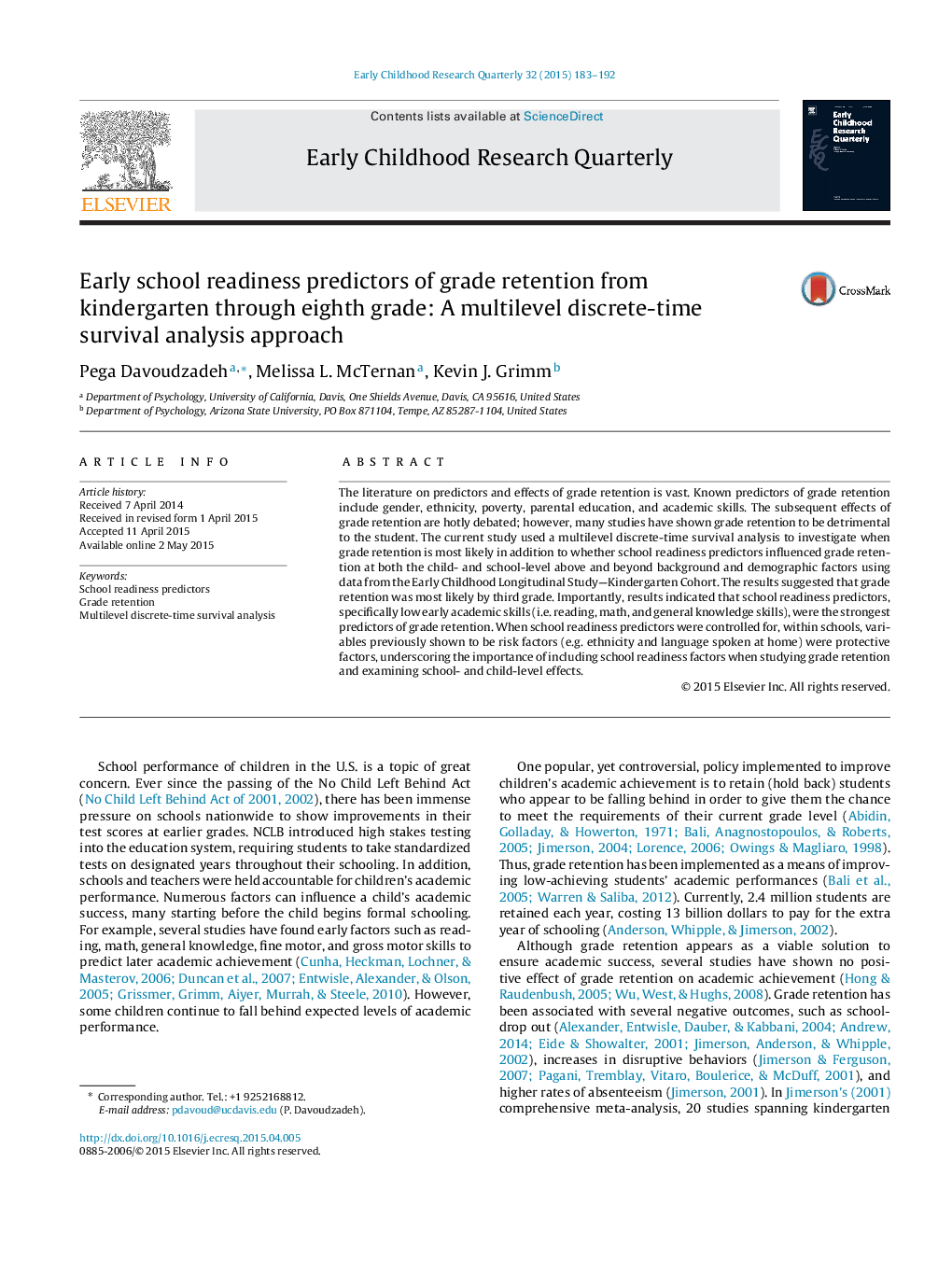| Article ID | Journal | Published Year | Pages | File Type |
|---|---|---|---|---|
| 353724 | Early Childhood Research Quarterly | 2015 | 10 Pages |
•Thirteen percent of children were retained.•Increases in academic skills decrease retention at child and school levels.•Increases in behavior and motor skills decrease grade retention at the child level.•Increases in fine motor skills decrease grade retention at the school level.•Ethnicity and ELL were associated with decreases in likelihood of grade retention.
The literature on predictors and effects of grade retention is vast. Known predictors of grade retention include gender, ethnicity, poverty, parental education, and academic skills. The subsequent effects of grade retention are hotly debated; however, many studies have shown grade retention to be detrimental to the student. The current study used a multilevel discrete-time survival analysis to investigate when grade retention is most likely in addition to whether school readiness predictors influenced grade retention at both the child- and school-level above and beyond background and demographic factors using data from the Early Childhood Longitudinal Study—Kindergarten Cohort. The results suggested that grade retention was most likely by third grade. Importantly, results indicated that school readiness predictors, specifically low early academic skills (i.e. reading, math, and general knowledge skills), were the strongest predictors of grade retention. When school readiness predictors were controlled for, within schools, variables previously shown to be risk factors (e.g. ethnicity and language spoken at home) were protective factors, underscoring the importance of including school readiness factors when studying grade retention and examining school- and child-level effects.
